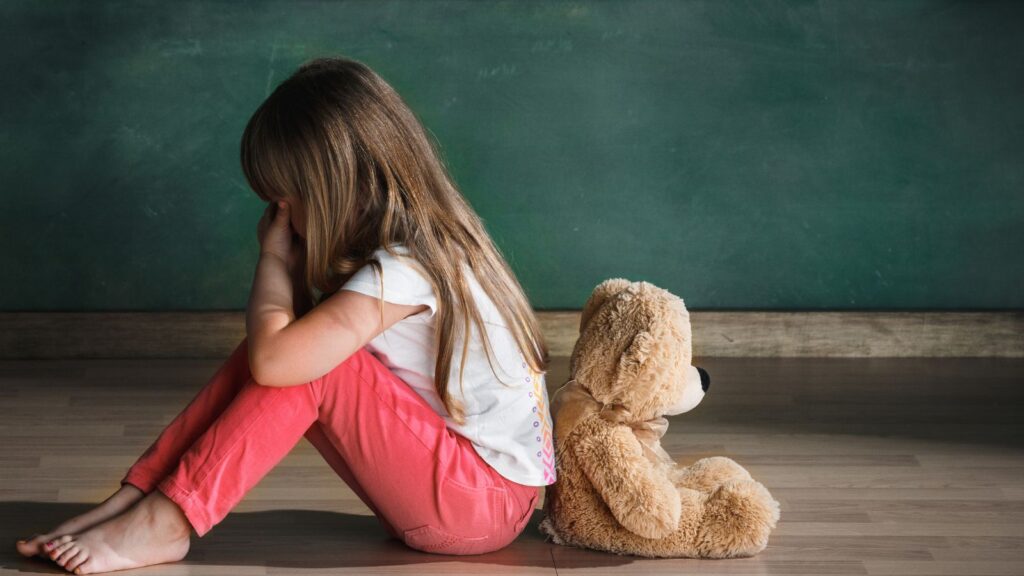Preschool years are filled with exciting milestones and fun times, but they’re also a time when you can spot any concerning behaviors. It’s normal to expect certain dramatic changes as they’re all part of growth and development, but some behaviors may need a closer look. Don't worry, there's plenty you can do to help advancement but it might sometimes call for a little extra help. Let’s take a look at a few preschool behaviors you shouldn't ignore.
Frequent Aggression

If your preschooler is frequently hitting, biting, or showing aggression toward others, it might be due to underlying frustrations or difficulty managing emotions. It’s worth addressing it early on with positive reinforcement and teaching conflict resolution. If it continues, it’s wise to seek professional advice.
Extreme Shyness

Some children are naturally shy, and there’s nothing wrong with that. If you’re noticing extreme shyness that prevents them from interacting with peers or participating in activities, it could be a sign of anxiety or social difficulties. Encouraging gradual social interaction in a safe, supportive environment can help, but don’t force them into anything.
Speech Delays

Many parents burst with pride when their infant starts speaking, and it’s normal for them to start communicating at different times. You shouldn’t feel stressed if they’re slightly behind. That said, if your child isn’t meeting approximate language milestones, such as speaking in full sentences or being understood by strangers, it might be time to consult a speech therapist. Early intervention can significantly improve communication skills.
Difficulty Following Instructions

Preschoolers love to test boundaries. They’re at the perfect age for doing so. Consistent trouble following simple instructions might indicate attention or comprehension issues. It’s not an issue, and there are plenty of ways that these behaviors can be improved. It helps to break tasks into smaller steps and use visual aids to improve understanding.
Regression in Skills

Every parent should see a gradual progression in skills over time, but a sudden loss of previously acquired skills, such as potty training or self-feeding, can be a sign of stress or emotional distress. It’s vital to have patience and try to understand potential triggers, and it's worth speaking to a professional about potential underlying issues.
Lack of Interest in Play

Play is essential for development, and it’s the best part of a kid’s life. Not all children are as drawn to swings and climbing frames as others, and it doesn’t have to mean anything untoward. If you notice that your child shows little interest in toys or imaginative play, it could indicate developmental delays or emotional issues. Try engaging in play together to stimulate their interest and development.
Overly Picky Eating

Picky eating is common in infants. It’s a time when they’re trying things out for the first time, so rejection of certain foods is expected. Extreme selectiveness or refusal to eat certain food groups can lead to nutritional deficiencies, so you don’t want to let it linger for too long. Consulting a pediatrician or nutritionist can help create a balanced diet plan.
Excessive Tantrums

Toddlers can often have tantrums, and every parent expects them to. Frequent, intense tantrums that seem disproportionate to the situation might suggest emotional regulation issues. Teaching coping strategies and providing a calm, consistent response can help manage outbursts, but it’s worth keeping an eye on triggers and seeing a professional if they seem to move beyond a phase.
Lack of Eye Contact

Avoiding eye contact can be a sign of social or communication difficulties in infants. While it can often be a sign of anxiety in adults, younger children typically lack the discomfort of eye contact. Encouraging face-to-face interactions during play and storytime can enhance social skills, and it’s something to remain vigilant about.
Repetitive Behaviors

Repeated actions like hand-flapping, spinning, or lining up toys can sometimes indicate sensory processing issues or developmental concerns. It’s nothing to worry about, and there are numerous ways to enhance learning. Occupational therapy can provide strategies to manage these behaviors. It’s a lot more common than you think.
Avoidance of Physical Touch

If your child is consistently uncomfortable with hugs, cuddles, or other forms of physical touch, it could signal sensory sensitivities or emotional issues. Gradual desensitization can help relieve any issues, but if they continue, it’s vital to speak to a professional. Always respect their boundaries to avoid upsetting them.
Difficulty Making Friends

Some preschoolers make friends more easily than others, and that’s just a fact of life. If it’s constant, and they’re struggling to form friendships or engage in group play, it might be a sign of social skill deficits. Organizing playdates and teaching social cues can improve their ability to connect with their peers, and it allows parents to keep a watchful eye on their development.
Fear of Separation

Separation anxiety is normal, and more so for some than others. It’s when there’s an excessive fear of being away from parents that it can indicate deeper anxiety issues. It’s helpful to gradually increase time apart and provide comfort items to ease their worries.
Obsessive Interests

Most infants have a topic or activity they’re focused on, but if the focus becomes intense to the exclusion of others, it might be a sign of developmental disorders. Try including a variety of activities and ease them in gently. It can help open their eyes to new ideas and ways of doing things.
Delayed Motor Skills

Don’t worry if your preschooler has just missed the milestone. It’s normal for them to develop at different times. If you’re noticing a difficulty with basic motor skills, such as running, jumping, or holding a pencil, it could be due to developmental delays that might require some extra effort. Physical therapy and engaging in activities that promote coordination can be beneficial.
Inconsistent Sleep Patterns

Every parent will face differences in sleeping patterns when they have multiple children. It’s only time to address it when they have ongoing trouble falling asleep, staying asleep, or frequent nightmares. Lack of sleep can affect their overall health and development, so it’s vital to establish a bedtime routine and create a calming sleep environment to improve sleep quality.
Overly Independent

Many parents celebrate an independent infant, and while it’s a great advancement to experience, extreme self-reliance to the point of rejecting help can indicate trust issues or a need for control. It’s useful to balance independence with supportive guidance to ensure that they’re having the best of both worlds.
Lack of Curiosity

Preschoolers are naturally curious, and they tend to ask questions about pretty much everything. A lack of interest in exploring or asking questions might suggest developmental delays. It might just be that they’re quietly confident, but encouraging exploration through hands-on activities and positive reinforcement can help stimulate curiosity.
30 Traditional Sayings That Are Now Considered Offensive by Woke Culture

30 Traditional Sayings That Are Now Considered Offensive by Woke Culture
21 Habits Often Associated With Having a Lower Social Status

21 Habits Often Associated With Having a Lower Social Status
25 Social Issues Gen Z are Determined to Cancel

